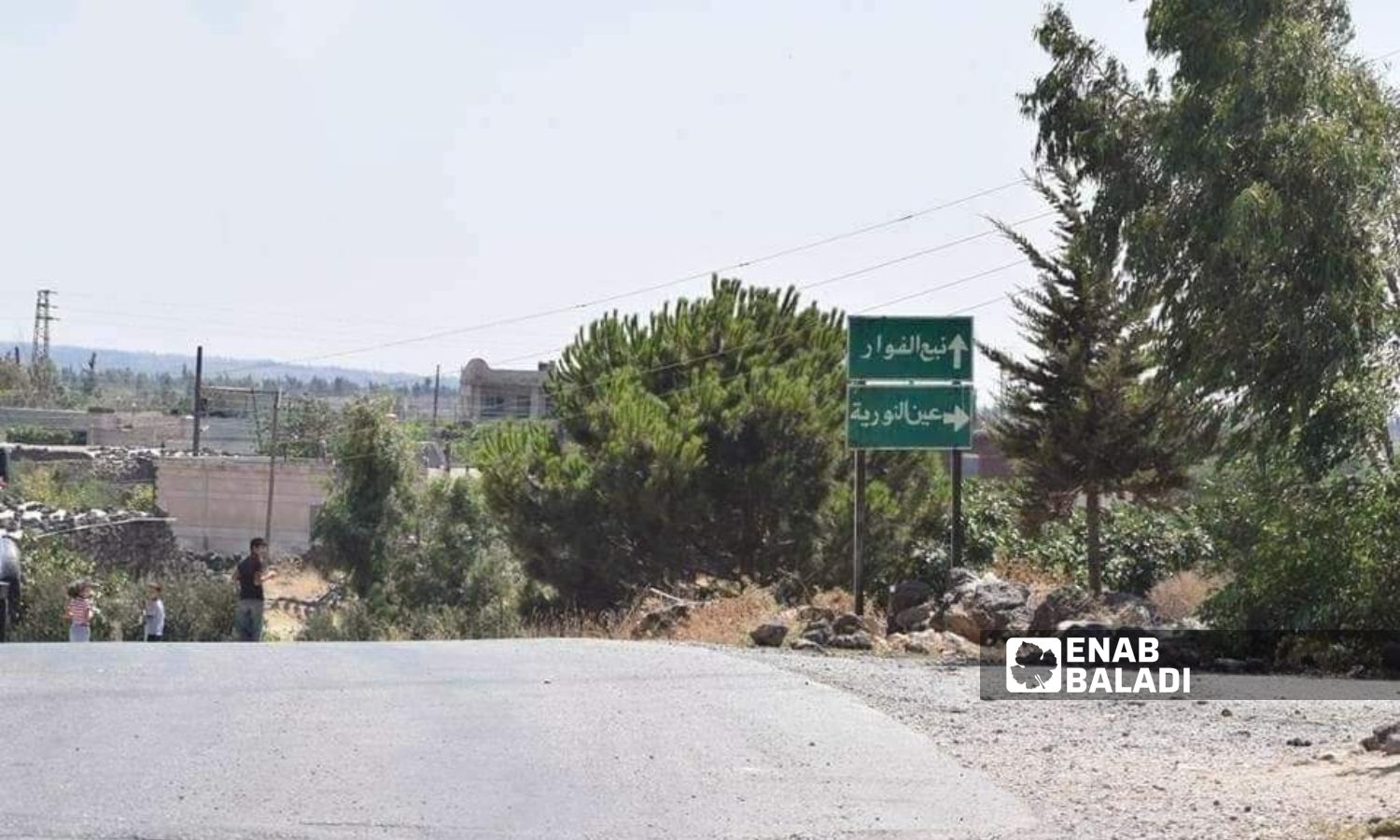



Quneitra – Zain al-Joulani
For the past ten years, the people of southern Syria have lived through war after war, transforming their lives into displacement and instability. This state of affairs has resurfaced following the Israeli escalation against Iran-backed Hezbollah in southern Lebanon, and the likelihood of its spillover into Syria.
Since the escalation began about two weeks ago, the residents of Quneitra, especially those in villages bordering the occupied Syrian Golan, recall the past years they lived through bombings and killings by regime forces and Hezbollah during the battles in which the latter two took control of the region from Syrian opposition factions.
Residents of Quneitra’s villages are perplexed amid increasing tensions and fears of the conflict expanding into Syria. Some of them wonder about the options available between staying or potential displacement, as locals from the area told Enab Baladi.
Leaning on his wooden cane, Abu Mohammed Ali Taha, a man in his sixties from the border town of al-Huriya in northern Quneitra countryside, said, “We hear the sounds of explosions and bombing coming from Lebanon every night and wonder when our turn will come.”
The man told Enab Baladi that the region’s people track daily the missiles exchanged between the two sides on the Lebanon-Israel border and the occasional gunfire targeting the area by the Israeli army.
According to Abu Mohammed, locals witness their agricultural lands being bulldozed by Israeli tanks as part of the ongoing project known as “Sufa 53.” Israel has been paving a road within Syrian territories in Quneitra for years.
Daily fears among the region’s inhabitants grow with the visible Israeli mobilization on the other side of the border, according to Abu Mohammed. Reports abound that the Israeli army might enter Syrian territories at any moment, prompting him to consider that he and his family are on the verge of a new displacement journey, as he told Enab Baladi.
He added, “We are at a loss; I’d rather die in my home than experience the bitterness of displacement again. We have no means, and our choices are limited.”
Wisam, a 39-year-old man living in southern Quneitra countryside, returned to Syria two days ago from Lebanon after ten years of displacement and refuge. He told Enab Baladi that he spent his youth between refuge and displacement and now fears that he and his family, residing in the province, might face the same again.
He added to Enab Baladi that many families who recently returned from Lebanon also share this concern, fleeing the bombing and killing there.
Wisam left his job in Lebanon, along with his household belongings collected over ten years, and fled with only his clothes alongside his wife and children to Syria to protect their lives.
Wisam told Enab Baladi that he has no choice but to flee again as the war won’t stop, and civilians have no role in it.
In Mumtanah town in the central Quneitra countryside, Ali, a 25-year-old young man, watches the situation in Lebanon daily through television and social media. He finds the scene familiar, as watching people move to schools, shelters, and camps is a state Quneitra’s residents have experienced repeatedly.
Ali says neither he nor his family members have been displaced in the past years, as they opted to stay and endure the bitterness of war and bombing, having lost many relatives during the area’s military operations.
Ali’s memory is active today, and given the events in Lebanon and rapidly unfolding ones in Syria, he and his family cannot make a decision, especially if a war erupts in the region, noting that he cannot foresee the future; he merely waits.
The Quneitra governorate has been teetering between calm and chaos for years, living in a state of security tension manifested in scattered assassinations and sporadic targeting from time to time.
Israel, on its part, targets Syrian lands in Quneitra, asserting that it is pursuing elements of Hezbollah.
Simultaneously, the era of large-scale military battles between the regime and opposition, which controlled it until 2018, has ended. Only some civilians and local armed factions, remnants of opposition factions, remain in Quneitra.
The governorate suffers from poor economic and service conditions, similar to other Syrian regions, but experiences service neglect more than others across all levels.
if you think the article contain wrong information or you have additional details Send Correction